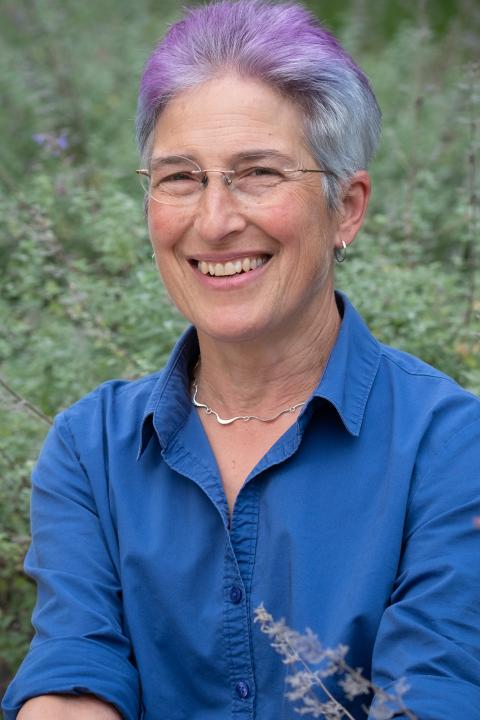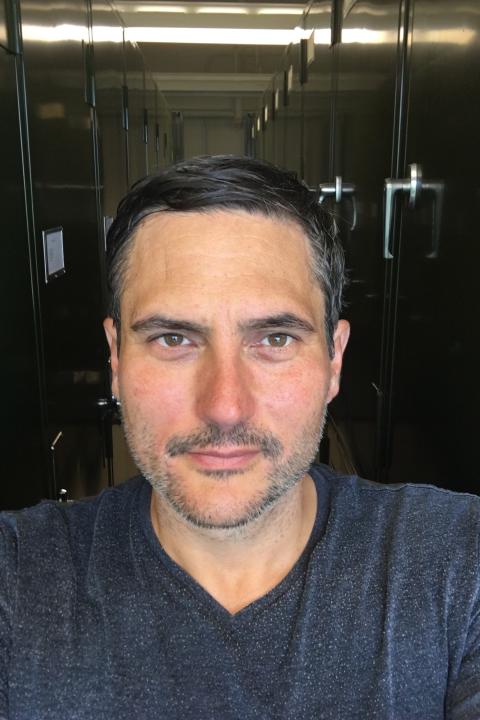Majoring in Biology at UNH offers you a comprehensive understanding of living organisms and their interactions with the environment. You will gain critical thinking and research skills through hands-on laboratory work and field studies, preparing you for careers in healthcare, environmental science, research and education. Biology majors are also well-equipped for advanced studies in medicine, veterinary science or graduate research. The interdisciplinary nature of the biology program at UNH fosters adaptability, making it an excellent choice for students passionate about understanding the natural world.
What is biology?
Biology is the study of living organisms, including microbes, plants and animals, and the way in which they interact with one another and their environment. Core courses in this degree program give students a foundation in subjects such as evolution, biodiversity, ecology, molecular and cellular biology, microbiology, and the principles of genetics. The biology major prepares students for jobs in a wide range of competitive fields, as well as for further studies in graduate, medical or veterinary schools.
Why study biology at UNH?
The biology major combines a challenging laboratory curriculum and engaging fieldwork with courses that capture the diversity of nature’s biological systems. UNH’s state-of-the-art facilities and location close to the New Hampshire Seacoast, Lakes Region and White Mountain National Forest provide a wide range of dynamic, hands-on research opportunities. Students are strongly encouraged to work closely with faculty in both the classroom and laboratory, and to participate in research projects related to freshwater, estuarine and marine biology, physiology, neurobiology and behavior, genetics and behavior ecology, biology education, tissue culture, and biodiversity of terrestrial and aquatic ecosystems.
Potential career areas
- Administration/management in biology fields
- Biotechnology companies
- Educational institutions
- Environmental conservation organizations
- Environmental consulting
- Pharmaceutical companies
- Research hospitals and medical centers
- Science writing
- State and federal agencies
Curriculum & Requirements
Biology is one of the most popular science majors since it provides a broad background in the biological sciences while allowing flexibility and specialization within the major. It integrates theoretical and practical (hands-on laboratory and field work) courses in different aspects of the biology of multicellular life. It encompasses the study of structural and functional relationships of living organisms at the molecular, cellular, and organismal level, the interactions of living systems with the environment and with each other, and the evolutionary relationships of life. Our goal is to create an environment for those with a scholarly interest in the biological sciences, and to extend their understanding, awareness, and appreciation of the diversity inherent in the biological sciences. Our major is aimed at promoting an excellent education in biological sciences by involving undergraduate students in a strong interaction with faculty both in the classroom and in research laboratories.
The biology major prepares students for post graduate degrees in the biological and medical fields, and for job opportunities in industry (environmental, biomedical, pharmaceutical, and biotechnological) and governmental research, and secondary school teaching. Completion of the four-year undergraduate program plus a fifth-year internship will be necessary for biology teaching certification. Students who plan to enter medical, dental, or related professional schools are advised to confer with their faculty adviser to work the requirements for these programs into their academic majors.
Core courses in the biology major are from departments that contribute to the biological sciences community at UNH. The core curriculum consists of introductory and upper-level science courses plus seven additional courses in the biological sciences; three of these must be selected from course lists in three broad categories.
While students are advised to declare the biology major as incoming first-year students to assure adequate program planning, transfer into this major at a later stage is also possible. Several of the other biological science majors share the same biology core curriculum. For the first to two years, it is quite easy to change to or from these other majors.
Sample Degree Plan
This sample degree plan serves as a general guide; students collaborate with their academic advisor to develop a personalized degree plan to meet their academic goals and program requirements.
| First Year | ||
|---|---|---|
| Fall | Credits | |
| BIOL 412 | Introductory Biology: Evolution, Biodiversity and Ecology | 4 |
| ENGL 401 | First-Year Writing | 4 |
| CHEM 403 | General Chemistry I | 4 |
| BIOL 400 | Professional Perspectives on Biology | 1 |
| Discovery Course | 4 | |
| Credits | 17 | |
| Spring | ||
| BIOL 411 | Introductory Biology: Molecular and Cellular | 4 |
| CHEM 404 | General Chemistry II | 4 |
| Discovery Course | 4 | |
| Discovery Course or Major Elective | 4 | |
| Credits | 16 | |
| Second Year | ||
| Fall | ||
| BIOL 541W | Ecology | 4 |
| CHEM 545 & CHEM 546 | Organic Chemistry and Organic Chemistry Laboratory 1 | 5 |
| Major Elective | 4 | |
| Disovery Course | 4 | |
| Credits | 17 | |
| Spring | ||
| BIOL 528 | Applied Biostatistics I | 4 |
| GEN 604 | Principles of Genetics | 4 |
| Major Elective | 4 | |
| Discovery Course | 4 | |
| Credits | 16 | |
| Third Year | ||
| Fall | ||
| PHYS 401 | Introduction to Physics I | 4 |
| BMCB 658 & BMCB 659 | General Biochemistry and General Biochemistry Lab | 5 |
| ZOOL 690 | Evolution | 4 |
| Major Elective | 4 | |
| Credits | 17 | |
| Spring | ||
| PHYS 402 | Introduction to Physics II | 4 |
| Discovery Course | 4 | |
| Second Quant Course | 4 | |
| Major Elective | 4 | |
| Credits | 16 | |
| Fourth Year | ||
| Fall | ||
| Major Elective | 4 | |
| Major Elective | 4 | |
| Capstone | 4 | |
| General Electives | 4 | |
| Credits | 16 | |
| Spring | ||
| Major Elective | 4 | |
| General Elective | 4 | |
| General Elective | 4 | |
| Credits | 12 | |
| Total Credits | 127 | |
- 1
Pre-professionals take one year of organic chemistry.
Degree Requirements
All Major, Option and Elective Requirements as indicated.
*Major GPA requirements as indicated.
Major Requirements
The biology courses in the core curriculum constitute an integrated sequence that train students in the basic skills and concepts of knowledge inherent to the biological sciences. The biology core allows a student to obtain a broad background in biology, and in the related physical sciences and math that provide a foundation for success in understanding biological principals.
To receive the B.S. degree in biology, students must complete 128 credit hours with at least a 2.0 cumulative grade-point average for completion of the degree. All UNH Discovery Program requirements, biology core curriculum requirements, plus seven additional courses from the biological sciences, and a capstone experience. A minimum grade of C- is required in all biological science courses that are counted toward the requirements for a degree in biology. Students who expect to compete successfully for post-baccalaureate programs should attain a cumulative GPA of 3.0 or higher by the end of the sophomore year and maintain it at that level.
| Code | Title | Credits |
|---|---|---|
| Core Curriculum Courses | ||
| BIOL 400 | Professional Perspectives on Biology 1 | 1 |
| BIOL 412 | Introductory Biology: Evolution, Biodiversity and Ecology | 4 |
| BIOL 411 | Introductory Biology: Molecular and Cellular | 4 |
| BIOL 541W | Ecology | 4 |
| GEN 604 | Principles of Genetics | 4 |
| ZOOL 690 | Evolution | 4 |
| CHEM 403 & CHEM 404 | General Chemistry I and General Chemistry II | 8 |
| CHEM 545 & CHEM 546 | Organic Chemistry and Organic Chemistry Laboratory 2 | 5 |
| MATH 424B | Calculus for Life Sciences | 4 |
| or BIOL 428 | Quantitative Biosciences | |
| or BIOL 633 | Data Analysis for Life Science | |
| or BIOL 711 | Experimental Design & Analysis | |
| or BIOL 706 | Data Science with R for the Life Sciences | |
| BIOL 528 | Applied Biostatistics I | 4 |
| PHYS 401 & PHYS 402 | Introduction to Physics I and Introduction to Physics II | 8 |
| BMCB 658A | General Biochemistry | 3 |
| BIOL 780 | Capstone Companion Course | 1 |
| Total Credits | 54 | |
Biology Electives
In addition to the biology core curriculum, students must complete seven biology elective courses. One course must be taken from each of the three categories/disciplines; the other four electives can be chosen from the category lists or can be any other biological sciences course with approval of the student's adviser. All courses must be 500-level or above. There must be one animal-identified course (A) and one plant/fungal/algae course (FP). One capstone experience is required of all seniors; see subsequent section on capstones for detailed requirements. Corequisite lecture and lab courses count as one course.
| Code | Title | Credits |
|---|---|---|
| Category 1: Form and Function (Morphology, Anatomy and Physiology) | ||
| ANSC 511 | Animal Anatomy and Physiology I (A) | 4 |
| ANSC 512 | Animal Anatomy and Physiology II (A) | 4 |
| ANSC 701 | Physiology of Reproduction (A) | 4 |
| ANTH 660 | Human Osteology (A) | 4 |
| BIOL 775 | Plant Rx (FP) | 3 |
| BMS 507 | Human Anatomy and Physiology I (A) | 4 |
| BMS 508 | Human Anatomy and Physiology II (A) | 4 |
| BMS 702 | Endocrinology (A) | 4 |
| BMS 718 | Mammalian Physiology (A) | 4 |
| MEFB 628 | Marine Invertebrate Evolution and Ecology (A) | 5 |
| MEFB 754 | Anatomy and Function of Marine Vertebrates (SML, A) | 4 |
| MEFB 773 | Physiology of Fishes (A) | 4 |
| ZOOL 518 | Comparative Morphology and Biology of Vertebrates (A) | 4 |
| ZOOL 625 | Principles of Animal Physiology (A, ZOOL 626 Lab optional) | 3 |
| ZOOL 777W | Neuroethology (A, C) | 4 |
| Category 2: Genetics/Development (including molecular biology and bioinformatics) | ||
| ANSC 612 | Genetics of Animals (A) | 4 |
| BMCB 605 | Principles of Cell Biology | 4 |
| BMS 503 & BMS 504 | General Microbiology and General Microbiology Laboratory | 5 |
| GEN 704 | Microbial Genetics and Genomics | 5 |
| GEN 705 | Population Genetics (GEN 725 lab optional) | 3 |
| GEN 706 | Human Genetics (A) | 4 |
| GEN 711 | Genomics and Bioinformatics | 4 |
| GEN 721 | Comparative Genomics | 4 |
| GEN 771 | Molecular Genetics | 4 |
| GEN 772 | Evolutionary Genetics of Plants (FP) | 4 |
| ZOOL 529 | Developmental Biology (A) | 4 |
| ZOOL 736 | Genes and Behavior (A, C) | 4 |
| Category 3: Evolution, Ecology and Biodiversity (including population biology) | ||
| BIOL 510 | Mushrooms, Molds, and Mildews: Introduction to the Fungal Kingdom (FP) | 4 |
| BIOL 566 | Systematic Botany (FP) | 4 |
| BIOL 704 | Plant-Microbe Interactions (FP) | 3 |
| BIOL 720 | Plant-Animal Interactions (FP, C) | 4 |
| BIOL 752 | New England Mushrooms: a Field and Lab Exploration (FP) | 4 |
| GEN 715 | Molecular Evolution | 4 |
| MEFB 503 | Introduction to Marine Biology | 4 |
| MEFB 510 | Field Ornithology (SML, A) | 4 |
| MEFB 530 | Evolution and Marine Diversity (SML) | 4 |
| MEFB 625 | Introduction to Marine Botany (FP) | 5 |
| MEFB 675 | Marine Mammal Biology and Conservation | 3 |
| MEFB 674 | Ecology and Marine Environment (SML) | 4 |
| MEFB 714 | Field Animal Behavior (SML, A) | 4 |
| MEFB 717 | Lake Ecology | 4 |
| MEFB 725 | Marine Ecology | 4 |
| MEFB 747 | Aquatic Plants in Restoration/Management (FP, C) | 4 |
| MEFB 772 | Fisheries Biology: Conservation and Management (A) | 4 |
| NR 506 | Forest Entomology (A) | 4 |
| NR 642 | Introduction to Biogeography | 4 |
| NR 660 | Ecology and Biogeography of New Zealand | 5 |
| NR 663 | Applied Directed Research in New Zealand | 4 |
| NR 712 | Mammalogy (A) | 4 |
| NR 713 | Quantitative Ecology | 4 |
| ZOOL 542 | Ornithology (A) | 4 |
| ZOOL 555 | Introduction to Entomology (A) | 4 |
| ZOOL 566 | Herpetology (A) | 4 |
| ZOOL 613W | Animal Behavior | 5 |
| ZOOL 690 | Evolution | 4 |
| ZOOL 708 | Stream Ecology (C) | 4 |
| ZOOL 710 | Sharks and Bony Fishes (A) | 4 |
| ZOOL 726 | Conservation Behavior (A) | 4 |
| ZOOL 733W | Behavioral Ecology | 4 |
| ZOOL 740 | Acoustic Ecology | 4 |
| Other Elective Options | ||
| BIOL 600 | Field Experience 3 | 1-4 |
| BIOL 633 | Data Analysis for Life Science | 4 |
| BIOL 695 | Biology Teaching Practices 3 | 1-4 |
| BIOL 700 | Current and Controversial Issues in Biology (C) | 4 |
| BIOL 706 | Data Science with R for the Life Sciences | 4 |
| BIOL 711 | Experimental Design & Analysis | 4 |
| BIOL 795 | Independent Investigations in Biology 3 | 1-4 |
| BIOL 799H | Honors Senior Thesis | 2-8 |
| BMCB 753 | Cell Culture | 5 |
| BMCB 760 | Pharmacology | 4 |
| BMCB 763 | Biochemistry of Cancer | 4 |
| BMS 602 & BMS 603 | Pathogenic Microbiology and Pathogenic Microbiology Laboratory | 5 |
| BMS 655 | Human and Animal Parasites (A) | 3 |
| BMS 703 | Infectious Disease and Health | 4 |
| BMS 704 | Pathologic Basis of Disease | 4 |
| BMS 705 | Immunology (BMS 715 optional lab) | 3 |
| BMS 706 & BMS 708 | Virology and Virology Laboratory | 5 |
| BMS 711 | 4 | |
| GEN 717 | Molecular Microbiology | 5 |
| HMP 501 | Epidemiology and Community Medicine | 4 |
| MEFB 590 | Coastlines in Crisis | 4 |
| MEFB 741 | Sharks: Biology and Conservation (A) | 4 |
| MEFB 755 | Biological Oceanography (C) | 3 |
| NR 508 | Communicating Science | 4 |
| NR 641 | Wildlife Disease Ecology | 4 |
| NSB 727 | Animal Communication (A, C) | 4 |
| PSYC 531 | Psychobiology | 4 |
| PSYC 731 | Brain and Behavior | 4 |
| PSYC 733 | Drugs and Behavior | 4 |
| TECH 797 | Undergraduate Ocean Research Project (A, C) 4 | 2 |
| ZOOL 610 | Principles of Aquaculture | 4 |
- 1
BIOL 400 Professional Perspectives on Biology is required only for first-year biology majors.
- 2
Students exploring pre-health professions should take a full year of Organic Chemistry (CHEM 651/CHEM 653 and CHEM 652/CHEM 654).
- 3
A 600, 695, 795, or 799 experience may substitute for one elective with academic advisor approval, but only if taken for at least four credits. These four credits may be spread over multiple semesters if they are consecutive and with the same faculty mentor.
- 4
This class requires enrollment in both fall and spring sections, 2 credits/semester for a total of 4 credits.
A 600, 695, 795, or 799 experience may substitute for one elective in any category with academic advisor approval, but only if taken for at least four credits. These four credits may be spread over multiple semesters if they are consecutive and with the same faculty mentor.
Note: It is strongly recommended that students participate in an exchange semester at another university, or in a field-oriented program or internship. There are many exchange opportunities available in which a full semester of credits toward the major may be earned. It is further recommended that students explore possibilities of one or more semesters of independent investigation (research projects). For details, students should contact their adviser. Financial support is available for most of these programs. In addition, students can explore the courses at the Shoals Marine Laboratory (SML), which provides an excellent setting for several "field-oriented" courses during the summer. Often there is financial support available for the SML programs. (See the SML website at https://marine.unh.edu/SML or the Cornell website at http://www.shoalsmarinelaboratory.org for details.)
Capstone Experience
As part of the University of New Hampshire’s Discovery Program requirements, all students must complete a capstone experience during their senior year (after earning at least 90 credits). The capstone experience for students majoring in Biology consists of BOTH (1) an approved individual experience AND (2) the successful completion of the BIOL 780 Capstone Companion Course. Students will not be approved for graduation until capstone certification has been granted.
1) The individual experience
The individual experience may be satisfied through various forms of experiential learning (e.g., Honors thesis, mentored research project, internship) or a course denoted with a “(C)” in the courses listed above. The individual experience must fulfill at least one of the University’s capstone criteria:
- synthesizes and applies disciplinary knowledge and skills
- fosters reflection on undergraduate learning and experience
- demonstrates emerging professional competencies
- applies, analyzes, and/or interprets research, data, or artistic expression
- explores areas of interest based on the integration of the prior learning
Before beginning any capstone individual experience, students MUST SUBMIT A COMPLETED CAPSTONE APPROVAL FORM to their Program Coordinator.
Students can obtain this form on the Department's Capstone page or from their Program Coordinator. Here they will describe their proposed individual experience and how it fulfills at least one of the University’s capstone criteria listed above. If the student is selecting a “C” course for their individual experience, they should obtain the course syllabus from the instructor for information about the course’s content and learning objectives.
2) Enrollment in BIOL 780
Students will also be required to enroll in BIOL 780 Capstone Companion Course (1 cr.) during the semester of their individual experience. BIOL 780 is offered every Fall and Spring semester.
- If the individual experience is a two-semester thesis, BIOL 780 should be taken during the second semester.
- If the individual experience occurs during the summer (e.g., internship), BIOL 780 should be taken during the Fall semester that immediately follows.
-
Note: Because BIOL 780 is not offered during the summer, students cannot complete their individual experience during the summer and graduate during that same September. Summer experiences could only be used as individual capstone experiences if completed the summer before the student’s senior year.
Program Learning Outcomes
- Students demonstrate that they understand basic principles of biology. Demonstrate a fundamental understanding of the relationships between structure, function, and process at the level of molecular, cellular, and organismal levels. Describe the principles and mechanisms of organismal evolution and genetics as the central unifying and explanatory concepts of biology. Explain the relationship between organisms and their physical, chemical, and biological environments. Explain what biodiversity is, its value in ecosystems, and the need for its conservation.
- Students demonstrate that they can undertake scientifically valid methods of inquiry. Demonstrate proficiency in searching, reading, and understanding scientific literature. Apply the scientific process, including the framework of initiation, designing, and conducting experiments, and the appropriate analysis and discussion based on the data gathered. Exhibit technical skills in the use of appropriate laboratory and field techniques commonly used in biology.
- Students demonstrate that they can think critically and analytically. Demonstrate an ability to critically and objectively evaluate data, develop hypotheses, interpret and or design biological experiments and studies.
- Students demonstrate that they can communicate effectively. Communicate scientific material effectively in written and oral formats.
- Students practice science responsibly and ethically, and acknowledge the influence of cultural and historical biases in the sciences.
Explore Program Details
Does the Biology program include internships or field experiences?
These experiences are plentiful in the Biology program. Internships can take place anywhere, for example, in a business, a research facility, or a wildlife refuge. Students engaged in career-oriented work experiences may earn academic credit through a faculty sponsor associated with their department. Also, UNH and Cornell University offer a summer field program in marine sciences on Appledore Island of the Isles of Shoals. Undergraduate courses introduce students to a broad array of marine sciences, including oceanography, marine biology, fisheries, and marine resources.
How about research opportunities?
We want research to play an important role in your intellectual development. Not someone else’s research, but your research. Programs such as the Undergraduate Research Opportunities Program allow undergraduates to experience the thrill of designing their own research projects, collaborating with faculty experts and presenting their research in a public forum. Students conduct research year-round, as freshmen and seniors, on campus and off, and even abroad.
Are there also service-learning opportunities?
Service-learning is a process that actively engages students in authentic, community-based problem solving as an integral component of the academic curriculum. The biological sciences faculty actively participate in service-learning activities in the community to help students understand “real-life” problems. Your college education is not confined to classrooms, laboratories and the library, but is the sum of a broad array of experiences.
What if I am not sure about the Biology major?
A first-year student can enter the College of Life Sciences and Agriculture as an Undeclared student. A first-year Undeclared student takes the same courses as the Biology majors. In the fall semester – LSA 400, BIOL 411, CHEM 403 – in the spring semester – BIOL 412, CHEM 404, and MATH 424B. As you can see, it is extremely easy to enter any one of our Biological Sciences degree programs and not be behind.
What do I major in if I want to do pre-med?
You can major in any field of study here at UNH. Pre-med is a program with a certain set of courses that must be taken before entering medical school. Most of the pre-med bound students major in Biology, as the requirements are the same for the Biology degree as they are for pre-med.
What are the opportunities for advanced study?
UNH’s Graduate School offers 14 masters of science programs in the College of Life Sciences and Agriculture along with seven Ph.D. programs. The B.S. degree in Biology would prepare you adequately enough for any of these programs of study.
Who will be teaching the classes that I will be in?
Full-time faculty members teach all lecture sections in the College of Life Sciences and Agriculture. Graduate teaching assistants participate and set up the laboratory experiences for the faculty members.
Welcome! Incoming Freshman pursuing the Biology Major.
The transition from high school to college can be intimidating and overwhelming. There are many activities available for your participation, while the challenges of academic success should be paramount. Balance is critical. Guidance can be provided through conversations with your classmates or your advisor, but often just “knowing” how things are done or what you could do comes with time. Particularly useful are links available at the UNH website found by googling “what I wish I knew as an incoming freshman.” Some opportunities, such as pre-Orientation programs (Marine Immersion, Connect, NH Outing Club) can be found at the Office of First-Year Programs website, which are given before classes start.
On to Academics! When people talk about Biology, they often talk about developments on the cutting edge. WELCOME TO THE EDGE! The Biology Core Course Sequence provides a solid grounding in the physical, quantitative, and biological sciences. –This sequence allows you to successfully transition into many of the other majors in the broad area of biological sciences, as well as provide the appropriate background courses for those interested in the biomedical/pre-professional sciences.
Q: How large are the classes?
A: The lectures in the biology core curriculum are medium-sized. However, our labs have no more than 24 students. Small laboratory sections are taught by faculty and/or graduate teaching assistants and include all students in the design and testing of scientific hypotheses based on data obtained in the field and lab. These laboratory experiences involve students in an exploration of an objective scientific process as scientists.
Q: Are the lectures in the Biological Sciences taught by Graduate Students?
A: NO! Our faculty members teach you from the introductory through the advanced levels.
Q: Will I be assigned an academic advisor?
A: YES! We have faculty members in the Biological Sciences who are involved with advising Biology majors.
Your faculty advisor will:
- Advise and recommend appropriate courses while expecting you to become involved in choosing your background courses in biology.
- Meet with you at least twice a year before registration, and you will be able to request additional meetings throughout the semester.
- Recommend the best order to take courses in, always considering students' interests and needs. This "order" can vary.
- Advise and recommend procedures for the Biology Honors in Major degree.
- Advise students on how to get involved in research in laboratories or fieldwork across campus.
- Suggest options available through CFAR (Center For Academic Resources) for students that are struggling with courses.
Q: Will my Biology degree help me find a career in Science?
A: Yes. Many of our Bachelor of Science degree graduates go on to professional schools (medical, dental, optometry, veterinary, etc.), graduate schools, laboratories, consulting, state and federal agencies, and science teaching, in New England and throughout the United States.
Q: Will I be able to work with faculty in the College of Life Sciences and Agriculture?
A: All faculty in the Biological Sciences are active researchers, publishing in major national and international scientific journals. Grant support has led to hundreds of major publications by our Biological Sciences faculty over the past ten years. Every faculty member welcomes undergraduate participation in this research -- this research is done through our Undergraduate Research Opportunities Program at UNH. Students can participate in these unique laboratory/research experiences as early as their sophomore year. Undergraduates have access to state-of-the-art equipment and techniques. These projects often result in our students being a co-author on a scientific paper or papers.
Could I transfer into the Biology Major from another major at another school?
Yes, provided that you meet the academic qualifications for the University of New Hampshire and if we have openings in the Biology Major. Class sizes are kept at a certain level so that students do not experience course access problems.
How many credits will UNH take?
If you are transferring from an accredited school, UNH will transfer in a maximum of 96 credit hours.
When can I apply?
You need to submit your transfer application by March 1st for September admission and by November 1st for January admission.
How can I find out which courses satisfy the Biology major requirements as well as the University's Discovery Requirements?
The initial evaluation of transfer courses and credit is made by the Admissions Office. Transfer credit is awarded for courses that are completed with a grade of "C" or better and are equivalent to courses offered at the University. Semester credits and course units are accepted at the value placed on each course by the sending institution. Quarter hour credits are converted to the semester hour according to the formula: One quarter hour equals 2/3 semester hour (1 Q.H. = 2/3 S.H.). Transferred courses that can be used to satisfy Discovery Program requirements are determined by the Admissions Office. Your advisor will determine which courses meet major program requirements. Courses that are not chosen to meet Discovery or Biology Major requirements will be applied toward meeting the 128 credits needed for graduation.
As part of the University of New Hampshire’s Discovery Program requirements, all students must complete a capstone experience during their senior year (after earning at least 90 credits).
For students in catalog years AY 20-21 and earlier, the following is a list of capstone options and the capstone designation form:
Capstone Designation Form
For students in catalog years AY 21-22 and later, the capstone requirements have changed. Learn More
Students interested in the Biology major may also be interested in the following advanced degrees at UNH. Students in the program also have the opportunity to participate in the UNH accelerated master’s program.
Molecular and Cellular Biotechnology M.S.
Molecular and Evolutionary Systems Biology Ph.D.





















